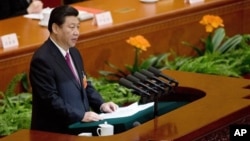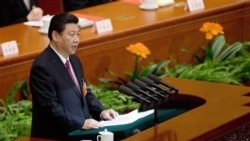Building a constructive relationship with China is an important element of U.S. strategy in the Asia-Pacific region, U.S. National Security Advisor Tom Donilon affirmed during a speech at The Asia Society.
The Administration is well positioned to build on its existing relationships with China’s new leaders, including President Xi Jinping, Premier Li Keqiang, and other top Chinese leaders. Taken together, China’s leadership transition and President Barack Obama’s re-election mark a new phase in U.S.-China relations – with new opportunities.
According to Mr. Donilon, “There are few diplomatic, economic, or security challenges in the world that can be addressed without China at the table.” Mr.Donilon further stated, “Of course, the U.S.-China relationship has and will continue to have elements of both cooperation and competition. Our consistent policy has been to improve the quality and quantity of our cooperation; promote healthy economic competition; and manage disagreements to ensure that U.S. interests are protected and that universal rights and values are respected.”
The United States and China must keep improving channels of communication and demonstrate practical cooperation on issues that matter to both sides.
Mr. Donilon continued, “A deeper U.S.-China military-to-military dialogue is central to addressing many of the sources of insecurity and potential competition. It is also critical that we strengthen the underpinnings of our extensive economic relationship.”
He concluded, “The United States will urge a further opening of the Chinese market and a leveling of the playing field. And the United States will seek to work together with China to promote international financial stability through the G-20 and to address global challenges such as climate change and energy security . . . We have worked hard to build a constructive bilateral relationship that allows us to engage forthrightly on priority issues of concern.”
The Administration is well positioned to build on its existing relationships with China’s new leaders, including President Xi Jinping, Premier Li Keqiang, and other top Chinese leaders. Taken together, China’s leadership transition and President Barack Obama’s re-election mark a new phase in U.S.-China relations – with new opportunities.
According to Mr. Donilon, “There are few diplomatic, economic, or security challenges in the world that can be addressed without China at the table.” Mr.Donilon further stated, “Of course, the U.S.-China relationship has and will continue to have elements of both cooperation and competition. Our consistent policy has been to improve the quality and quantity of our cooperation; promote healthy economic competition; and manage disagreements to ensure that U.S. interests are protected and that universal rights and values are respected.”
The United States and China must keep improving channels of communication and demonstrate practical cooperation on issues that matter to both sides.
Mr. Donilon continued, “A deeper U.S.-China military-to-military dialogue is central to addressing many of the sources of insecurity and potential competition. It is also critical that we strengthen the underpinnings of our extensive economic relationship.”
He concluded, “The United States will urge a further opening of the Chinese market and a leveling of the playing field. And the United States will seek to work together with China to promote international financial stability through the G-20 and to address global challenges such as climate change and energy security . . . We have worked hard to build a constructive bilateral relationship that allows us to engage forthrightly on priority issues of concern.”






